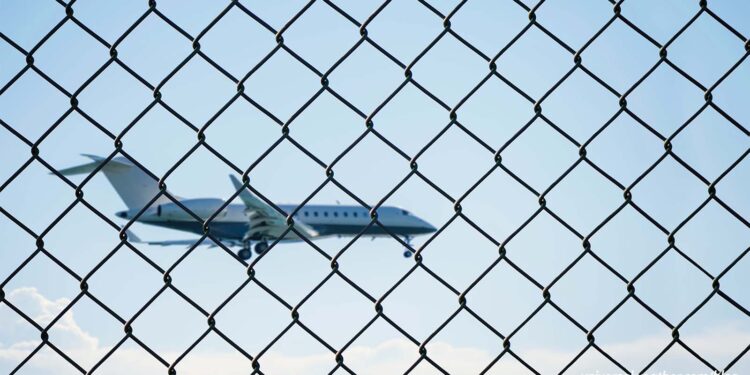BizAv Security Planning for the 2016 Brazil Summer Games – Part 1: Risk Assessment

This business aviation blog post is part of a series on security considerations for the upcoming 2016 Brazil Summer Games.
Security threat awareness and risk mitigation must be top of mind awareness for general aviation (GA) operators traveling to the 2016 Brazil Summer Games (August 5-September 18). Rio de Janeiro is well known for petty and violent crime, as well as criminal gang activity, while other Summer Games venues in Brazil also have their associated risks. Local criminal elements had the benefit of a “dry run” in 2014 with the World Cup event and will be even better prepared to practice their trades during the Summer Games later this year.
The following is an overview of what you need to know:
1. Risks higher than normal
The 2016 Brazil Summer Games takes place in Rio de Janeiro and several other locations throughout Brazil August 5-21. Rio is a high threat location in terms of petty and more aggressive crime – from pick pocketing to violent robbery to express ATM kidnappings. While most incidences of heavy duty armed crime occur at night, you may experience flash robberies, thefts and pick pocketing during daylight hours almost anywhere. For example, you may find yourself swarmed by a group of children on the street or on the beach. While they may seem cute they can be dangerous and are adept at using manipulative tactics to catch tourists and business visitors off guard. Criminal elements in Rio and elsewhere had the benefit of fine tuning their techniques during the 2014 World Cup and are even more aware of what they need to do this time around.
2. Aircraft guards
In Brazil, it’s usually permitted to arrange to have security personnel airside to guard your aircraft during layovers. However, over the Summer Games period airside movements and congestion will be significantly greater, and it’s possible that aircraft guard services might not be permitted airside during particularly busy periods.
3. Hotel considerations
During last year’s World Cup, many complaints were filed with the State Department concerning hotel break-ins and thefts. Similar security risks can be expected during the Summer Games. Hotel security briefs should include an analysis of hotel security systems, whether rooms are equipped with safes, and if 24-hour security officers are posted in public areas. You should also be provided with information on known security responses and capabilities of the particular hotel. In addition, you’ll want to avoid hotels with clubs or bars that attract a public, non-guest crowd as this can pose a security threat.
4. Local transport considerations
The Summer Games take place in eight different venues in Brazil, from Rio de Janeiro to Salvador, Belo Horizonte and Manaus. While risks of violent gangland crime are higher in Rio, there are security risks to be aware of at each location. Prepaid transport (car with driver) is recommended although some operators will choose to contract secure transport, with or without executive protection. At minimum you should be aware of different routes to get to/from the airport, meetings and your hotel, and this can be achieved with custom route assessments. We do not recommend public transport during the Summer Games in any circumstances. Although rental vehicles may be an option for crews who are familiar with the area, there’s always potential for bad outcomes with this mode of transport. Good security briefs will let you know what travel routes are recommended and not recommended and should also include a map illustrating “go” and “no-go” areas as well as areas to avoid after dark.
5. Health risks
A number of health risks can impact GA operators traveling to Brazil, including yellow fever, malaria, typhoid fever, hepatitis B and the Zika virus. It’s important to be aware of required prevention mandates, such as yellow fever immunization, along with recommended practices such as preventative measures for malaria. Understanding Zika virus risks at your destination is also critical when visiting Brazil, especially if you’re pregnant or may become pregnant over the next year. It’s also recommended to be aware of where the best local medical resources are located and to have evacuation medical insurance coverage in place.
6. Additional Reading
See our previous articles covering best practices for business aviation security planning.
Conclusion
As Brazil is considered a high threat level for travel, it’s recommended to obtain security assessments in advance. This information can be obtained through your 3rd-party or security provider. This will give you insight as to what to expect on the ground. Over the past couple of years, health risks and emerging diseases have become more significant threats to international travelers. Particularly when operating to Brazil for the Summer Games, it’s important to understand potential health risks and to have contingency plans in place.
Stay tuned for Part 2, which covers security briefs and executive protection for the 2016 Brazil Summer Games.
Questions?
If you have any questions about this article or would like assistance arranging security for your upcoming trip, contact me at traciecarwile@univ-wea.com.
World Cup, 2014 Brazil and Brazil 2014 are trademarks of the Fédération Internationale de Football Association (“FIFA”). Universal Aviation is not in any way associated with FIFA.




